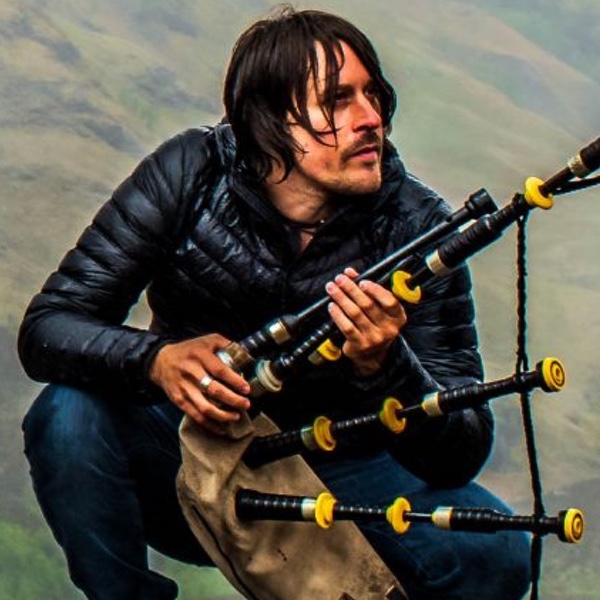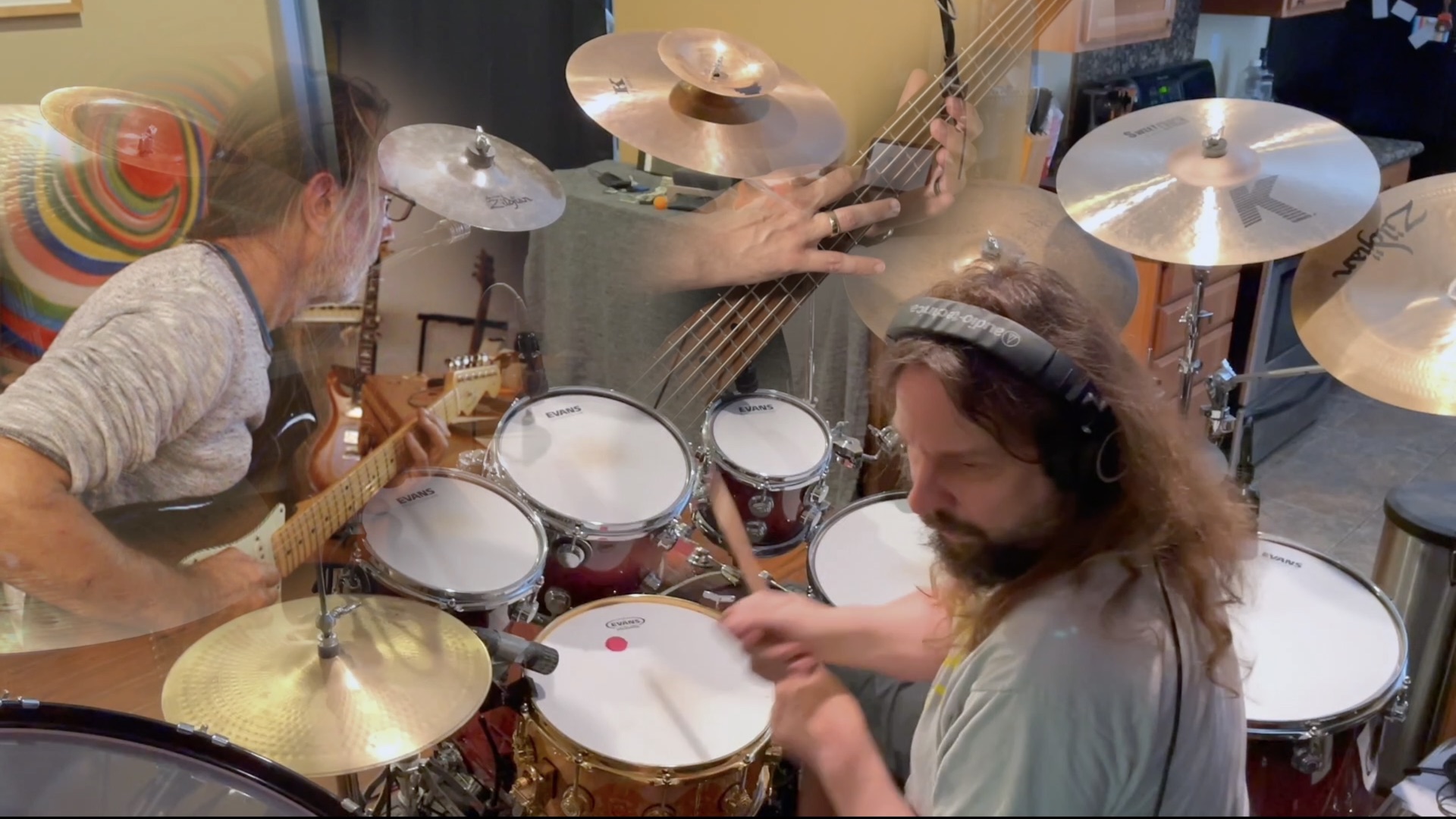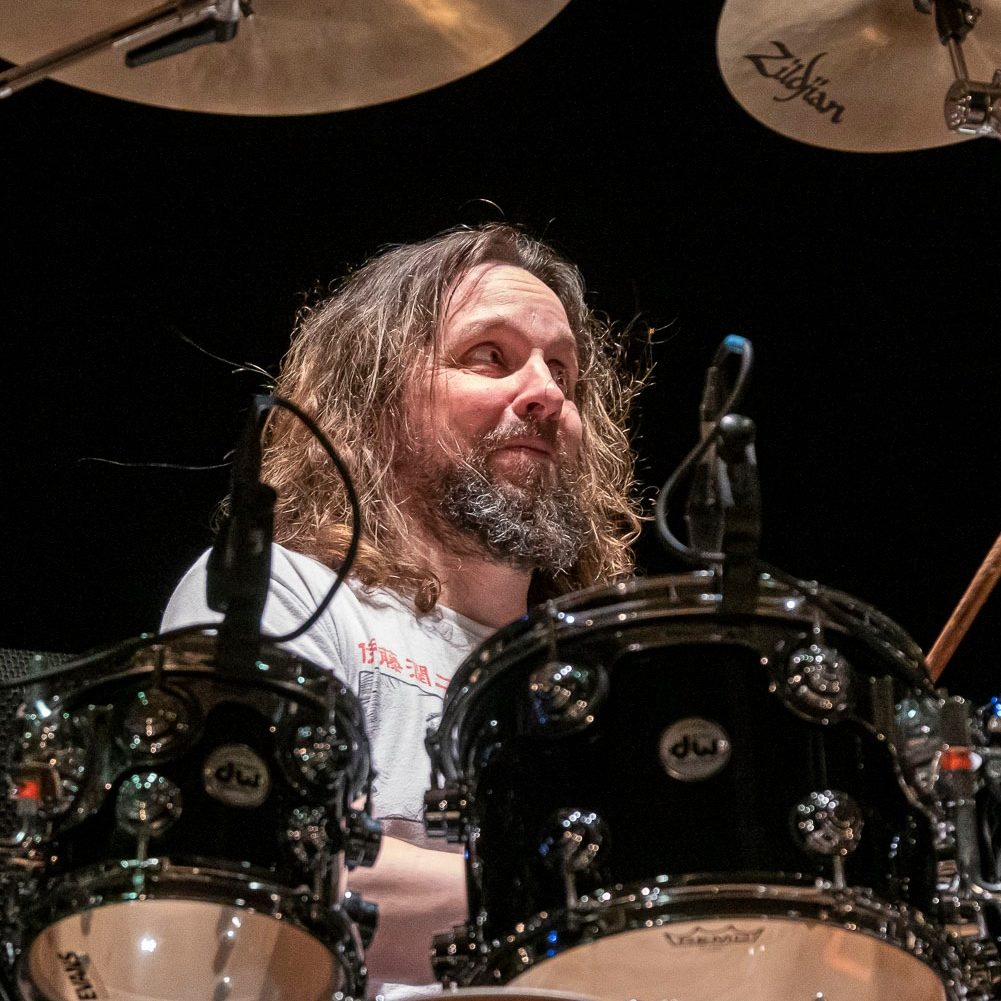
(click to scroll down to English version)
Ross Ainslie ist flötender Flötist und dudelnder Dudelsackspieler aus original schottischem Anbau. Eben dort gilt er als einer der feinsten Komponisten und Performer traditioneller schottischer Musik, gewann diverse Preise und unterrichtet auch als Flötentutor.
Auf der Suche nach einem klanglich vollkommen anderen Ansatz für Wizard of Oz war ich mit Michalina Malisz‚ Drehleier bereits klanglich so ein bisschen ins Mittelalter abgebogen, hatte in der Conversation in Hamelin Version allerdings noch Gitarren von Harry enthalten. Dieser schrieb mir dann zurück: „Hey, warum nimmst du die Gitarren nicht einfach ganz raus und gehst den Weg konsequent?“ – Ja, warum eigentlich nicht!? dachte ich und überlegte, was dieser Weg sein könnte.
Es sollte eine outlandish klingende Version werden: Dudelsäcke könnten eine gute Ergänzung sein, um den Klangraum auszufüllen. Also überlegte ich, wer mir zum Thema Dudelsäcke einfiel, dessen Musik mich bewegte. Als erstes kam mir die Mittelalter-Rockband Corvus Corax aus Berlin in den Sinn. Ich machte die Kontaktinfos ausfindig, um dann festzustellen: „Ja, coole Nummer. Würden wir gerne machen, aber wir haben keine chromatischen Dudelsäcke und unsere Säcke passen nicht zu deiner Tonart.“ Irgendwie kam mir diese Antwort seltsam bekannt vor. Man wisse auch nicht so recht, wer chromatische Dudelsäcke spiele.
Na gut, dachte ich mir, dann fragen wir doch mal die künstliche Intelligenz, ob sie zu was nutze ist. Zu meiner völligen Überraschung kam ChatGPT mit folgender Antwort zurück: „… Zum Beispiel nutzt die schottische Band Wolfstone oft den Northumbrian Smallpipe, der ein chromatischer Dudelsack ist, …“ Also mal gegoogelt, für interessant befunden und den Chef-Kontakt kontaktiert: „Klingt nach einem fantastischen Projekt. Leider ist unser Chefdudler vom Dienst vollends Land unter, aber ich habe hier mal Ross Ainslie reinkopiert. Der ist der perfekte Mann für den Job.“ Also hörte ich auch da mal rein. Das erste, was ich hörte war:
Da war mir sofort klar: Ja, genau DER! Er würde in der Tat genau der richtige sein, hier eine Dudelsackatmosphäre reinzubringen und darüber hinaus mit seiner Flöte zu solieren. „Das was der Song braucht, spielst du wahrscheinlich mit einer Hand auf den Rücken gebunden?“ sagte ich zu ihm, worüber er herzlich lachte. Dann stellte sich heraus: Er hat auch keinen chromatischen Dudelsack, aber zumindest einen, mit dem man die Tonart von Wizard Of Oz treffen kann. „Kannst Du mir Anhaltspunkte liefern, was du ungefähr wo und wie haben willst?“ meinte er und gab mir das Spektrum an Tönen, die möglich sind, um einen Arrangement-Vorschlag unterbreiten zu können. „I kaan goh as loh as Eeya.“ meinte er im schottischen Akzent. „Ah, E“ wiederholte ich. „Noh, Eeya.“ korrigierte er mich. Ich lachte und wiederholte: „Ah, you mean A.“ – „Aye“. Und so kam es, dass ich das erste Dudelsack-Arrangement meines Lebens schrieb, das er dann auf seine Art zum Leben erweckte und schließlich noch seine Wahrheit an der Flöte ins Stück einbrachte. In Anlehnung an den Rattenfänger von Hameln benannte ich die Variante schließlich Conversation in Hamelin.
Hört euch unbedingt seine Sachen auf Youtube, Spotify oder Apple Music an.
English Version
(translated by ChatGPT)
Ross Ainslie is a fluting flutist and a bagpiping bagpiper of genuine Scottish cultivation. In Scotland, he is regarded as one of the finest composers and performers of traditional Scottish music, has won various awards, and also teaches as a flute tutor.
While searching for a completely different sound approach for Wizard of Oz, I had already ventured slightly into a medieval vibe with Michalina Malisz’s hurdy-gurdy, but the Conversation in Hamelin version still included guitars from Harry. Having listened to it he then wrote back to me: „Hey, why don’t you just take the guitars out entirely and go all in with different sounds?“ – Well, he’s got a point, I thought and began to consider what that direction could be.
It was meant to be an outlandish-sounding version: bagpipes could be a good addition to fill the sound space. So I thought about who came to mind in terms of bagpipes, whose music moved me. The first thing that came to mind was the medieval rock band Corvus Corax from Berlin. I tracked down their contact info, only to find out: „Yeah, cool idea. We’d love to do it, but we don’t have chromatic bagpipes, and our pipes don’t match your key.“ Somehow this response felt oddly familiar. They also weren’t quite sure who played chromatic bagpipes.
Alright, I thought, let’s ask artificial intelligence if it’s of any use. To my complete surprise, ChatGPT came back with the following answer: „… For example, the Scottish band Wolfstone often uses the Northumbrian Smallpipe, which is a chromatic bagpipe, …“ So I googled them, found their music interesting, and contacted the head of the band: „Sounds like a fantastic project. Unfortunately, our main piper is completely swamped, but I’ve copied Ross Ainslie into this. He’s the perfect man for the job.“ So, I checked out his music as well. The first track I came across was this one:
And I knew immediately: Yes! HIM! He really would be the perfect fit to bring in that bagpipe atmosphere and also to solo with his flute. „What this song needs, you could probably play with one hand tied behind your back,“ I told him, to which he laughed heartily. Then it turned out: he also doesn’t have a chromatic bagpipe, but at least one that could match the key of Wizard of Oz. „Can you give me some pointers on what you want, roughly where and how?“ he asked and gave me the range of notes that were possible to make a suggestion for the arrangement. „I kan goh as loh as Eeya,“ he said in a Scottish accent. „Ah, E,“ I repeated. „Noh, Eeya,“ he corrected me. I laughed and repeated: „Ah, you mean A.“ – „Aye.“ And so it happened that I wrote the first bagpipe arrangement of my life, which he then brought to life in his own way and eventually added his magic on the flute to the piece. In reference to the Pied Piper of Hamelin, I finally named the version Conversation in Hamelin.
Be sure to check out his work on YouTube, Spotify, or Apple Music.



